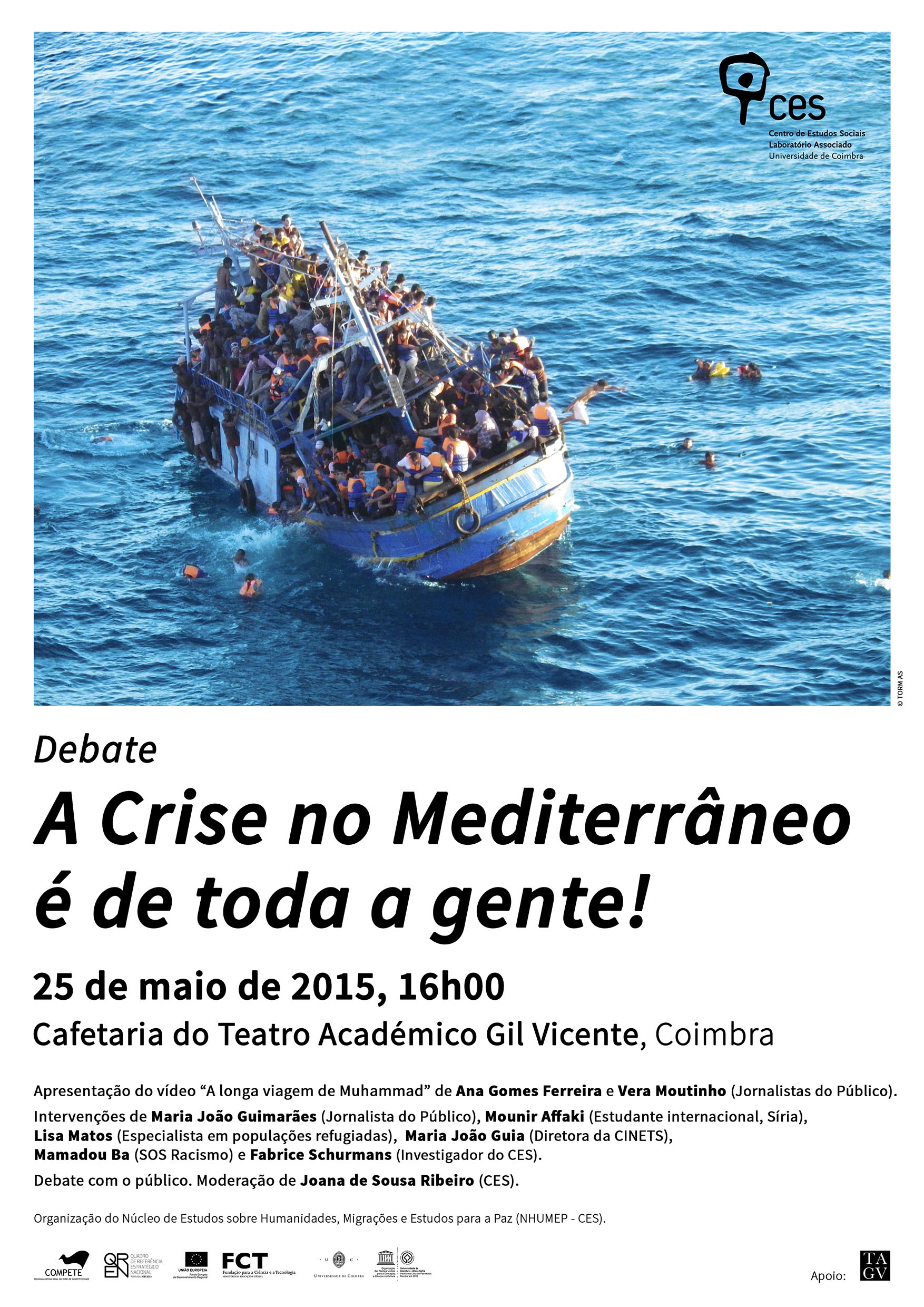Debate
Crisis in the Mediterranean is everyone's
May 25, 2015, 16h00
Cafetaria do Teatro Académico de Gil Vicente (Coimbra)
Synopsis
"We haven't come looking for a better life. We've come looking for life. Death is right behind our backs", says a 47-year-old Ahmed Abdalla, who crossed the Mediterranean sea to reach Europe as he fled the war in Somalia. Ahmed Abdalla has lived in Portugal since 2009. Each trajectory of survival represents a life story – of a life in the underworld - as we have recently learned first hand from the mass-media.
As for the numbers, even though they don't do full justice to the scale of the phenomenon, those that we do know show that the tragedy persists and intensifies. In 2014, over 220 thousand of migrants and asylum seekers arrived at the European Union via the sea route, half of them – coming from Syria, Eritrea, Somalia and Afghanistan. This year alone, the International Organization for Migration has registered 3279 deaths of people in the Mediterranean region, which amounts to 65 per cent of all the fatalities among the world's displaced population. 1790 deaths have been registered in the first six months of 2015 only. And counting.
The Mediterranean sea has thus become the symbol of crisis – political, economic, social, cultural crisis. Humanitarian also.
We wonder, to what extent the implementation of the Common European Asylum System, of surveillance, securitization and externalization of borders (through Frontex, EUROSUR, the EASO, etc.), as well as the Directive on Return and readmission agreements can be consistent with the protection of human rights and human dignity, as stated in the EU Charter of Fundamental Rights?
At the CES-UC, our group on Humanities, Migrations and Peace Studies (NHUMEP) has developed migration research. So we consider it our joint responsibility to promote a discussion of the recent events in the Mediterranean region.
Being guided by the need to look for "points of dialogue" between multiple ways of knowing, we do not want to exclude any kind of knowledge, whether it represents a "lived experience", an institutional knowledge, or a scientific one. We believe that only by opening up the scientific debate to public participation in a dialogic and integrated way, we can effectively contribute to the construction of new forms of socially committed citizenship. This session pursues this objective exactly, aiming to promote an open discussion on the Mediterranean crisis, whose scope, outreach and results will be defined by all the discussion participants.
Programme
· Documentary “A longa viagem de Muhammad” [Muhammad's long journey], Ana Gomes Ferreira, Vera Moutinho (Journalists, Público)
· Discussants:
- Maria João Guimarães (Journalist, Público);
- International student, Syria;
- Lisa Matos (Expert in refugee studies);
- Maria João Guia (CINETS Coordinator – Crimmigration Control International Network);
- Mamadou Ba (SOS Racismo);
- Fabrice Schurmans (NHUMEP, CES-UC).
· Open discussion
Moderator/Facilitator: Joana de Sousa Ribeiro (NHUMEP, CES-UC)
Organization: Humanities, Migrations and Peace Studies Research Group (NHUMEP)


